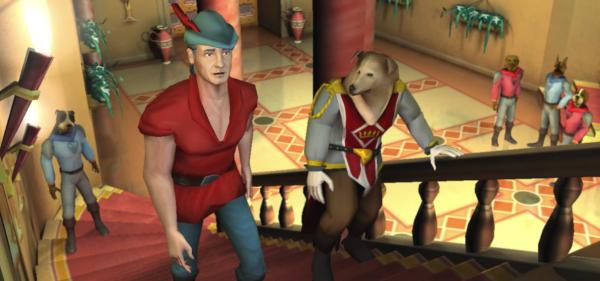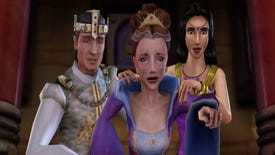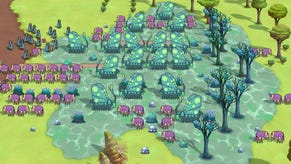There Is No Silver Lining
Goodbye The Silver Lining. Our culture is formed by the sharing of ideas. Throughout history, for millennia, every piece of art, music, literature and entertainment has been the result of a worldwide collaboration. It's been an astonishing act of creative evolution, the most vibrant and extraordinary gene pool of imagination and inspiration, from which all were free to draw and create. It has been exceptional, and in the last 50 to 100 years it has come to an end.
The tragedy of the abuse and misuse of intellectual property and copyright cannot be counted. After centuries of sharing, we have allowed a "MINE!" tag to be affixed to every thought, string of notes, doodle on a page, or merest whim. We have committed a grotesque cultural suicide. And the extent to which this has reached should be a parody. We have now allowed ourselves to be in the situation where art museums ban sketching - something that should surely make anyone whose understanding of art history goes beyond yesterday scream in fear. And it exists in our world of gaming in a similarly berserk form. And so it is that Activision has closed down work on not-for-profit fan creation The Silver Lining.
Sierra (also known as Sierra Online and Vivendi at various points in their existence) were famed for shutting down any fan projects based on their IP. Along with LucasArts, they have fired out many a cease & desist letter to many a just-for-fun fan project, in the name of defending their intellectual property (IP).
The rationale behind this is two part. First, due to the magical ways our sharing-preventing system works, if you are not seen to be actively defending your trademarks, you lose the exclusivity of the name. Secondly, it is believed by these companies that if outsiders use their IP then they are being stolen from. Zak McKracken, for instance, hasn't been used by LucasArts since 1988. 22 years. But if anyone tries to create a game featuring him they will likely be hearing from their lawyers. LucasArts may want to sell the right to use Zak Mak to Telltale, for instance. If he's let into the public domain this would be a revenue stream they've lost.
There's an elegant solution. You create a deal with the fans, allowing them the rights to use your IP but with some strict conditions: They may not profit from your work, they may not identify the characters as their own, and so on. The creators are still in control, but they allow the fans to celebrate the work with original productions. It's a compromise, and it's a very acceptable one in the face of a larger sad situation.
Good sense tells you that fan appreciation is an advantage. If someone claims to have created Zak McKraken and is selling the game to fund their badger baiting, then it is understandable that a corporation would wish to put a stop to this - in their view this is money that should be theirs being given to someone else. But if you've a fan base who love your games, and that base wants to endorse your game through their own not-for-profit creations, that's advertising. It's people promoting your product for free. If your product's for sale, it will introduce more people to your original game, and create a larger desire for more of the same.
In fact, it's something publishers are paying for. Consider how much EA must be spending on the Dragon Age Journeys Flash games - they're essentially the same, just not made by fans. A free-to-play tribute to the full game, played in an embedded web form, created purely as advertising. That's the madness: these publishers know how valuable such things are.
Sierra/Vivendi made a deal with Phoenix Online Studios to allow them to make their King's Quest tribute game, The Silver Lining. The studio asked that they not use the title "King's Quest IX...", since it's not impossible that they'd make their own ninth game at some point, but gave them the go-ahead. Of course, not straight away.
Originally they received the traditional C&D letter from Vivendi, once the project was noticed. Four years into development. Their mistake was to release a trailer. This was followed by a swell of support from fans of the project, sending over a thousand emails to complain about the actions of the publisher, and encouraging an agreement with the fan developers to allow them to continue. And impressively, this worked. In late 2005 they were permitted to continue.
After a recent decision to manage the project by dividing it into chapters, the first release was due soon this year. It is no more. Because now Activision - current owners of Sierra/Vivendi IP - have issued a new Cease & Desist to the amateur developers, shutting the project down completely. And it's a brutal act. Not just eight years of work immediately wiped out and all signs of the game removed from the internet, but Activision are even forcing them to close down their forums, deleting a decade's discussions between the community.
Something has gone so horribly wrong. What did Activision possibly think they were going to lose from a property gained by buying Blizzard, that hasn't released a new game in twelve years? I am unable to think of a way maintaining or updating the Vivendi agreement could have harmed the giant corporation. It doesn't threaten their options to continue the series, and nor is their any recognisable argument that it would reduce sales. In fact, it may have quite the opposite effect.
Charles Cecil's Revolution has found that allowing fan projects may have even helped their sales. (Declaration of interest here: I've done work for Revolution on the DS/Wii version of Broken Sword). Not only has Revolution released their earliest games, Lure of the Temptress and Beneath A Steel Sky as freeware, but they even went so far as to help the ScummVM team to make the games work on their emulator. Further, the company has encouraged a German fan project with Broken Sword 2.5, that tells a story between the events of the second and third Broken Sword games. This is a game that not only uses the game title, but even artwork and assets from Cecil's originals.
So why does Cecil allow this? Is he not afraid of the same things that must be worrying publishers like Activision?
"I am aware that our approach is quite different to that of many other brand holders," Cecil explains, making no comment specifically about the Activision situation, but speaking about his own experience. "In the short term it is easy to understand why rights are so closely guarded, but I have no doubt that Revolution has benefitted in the long term by our more open approach."
He still wants limitations in place. For Broken Sword 2.5 "Uncle Charles" Cecil was aware that there was a line that couldn't be crossed in terms of what they did with the game. "When we were approached by MindFactory who wanted to write Broken Sword 2.5, I was happy to support the project but on the proviso that it wasn’t sold." He says this was because it crossed a line where it appeared the game was endorsed by Revolution, rather than being something inspired by them but created entirely separately as a tribute. Cecil adds, "Broken Sword 2.5 was a fun game, and was particularly impressive when you consider that it was created by enthusiasts."
So what about earlier games? Why did he allow his earliest IP to be available to ScummVM? "Lure of the Temptress and Beneath a Steel Sky were written for MS-DOS – and when Windows stopped supporting DOS in the late ‘90s the games could no longer be played on then-current operating systems. So when ScummVM approached us to port the games, I saw no reason not to allow them to do so and we offered the games for free."
It's Cecil's nonchalance about this, that to him it's obviously what makes sense, that strikes the strongest contrast between his attitude and those experienced elsewhere. But did this do him any harm? Giving things away for free only a short time before it was realised that these old properties could be reinvented for the mobile market? It seems not, says Cecil. "In hindsight it was a smart move. It kept the brands vibrant and, being free, they were played by a very wide audience."
And this, Cecil believes, offered advantages when it came to the iPhone release of Beneath A Steel Sky. "The iPhone with its touch interface offered the ideal platform to re-invent Beneath a Steel Sky – although, interestingly, a couple of people moaned that we were charging for the application. Plenty of people responded to point out how ludicrous that argument was. So the advantage of releasing the game through ScummVM was that it was kept the brand alive – the disadvantage was that some people then expected it to be permanently free."
There does seem to be strong logic to suggest that keeping old brands alive and in the public consciousness is advantageous to owners of IP, especially when they haven't been used or even sold for as much as decades. It seems counter-intuitive to stifle creativity inspired by a publisher's products, and it's certainly counter to the foundations of all culture.
We approached Activision for a comment, asking what their reasons were for closing down The Silver Lining, and whether they would ever allow a non-commercial license for a fan-made game based on their IP. Unfortunately after twenty four hours we were finally told, "No comment."











